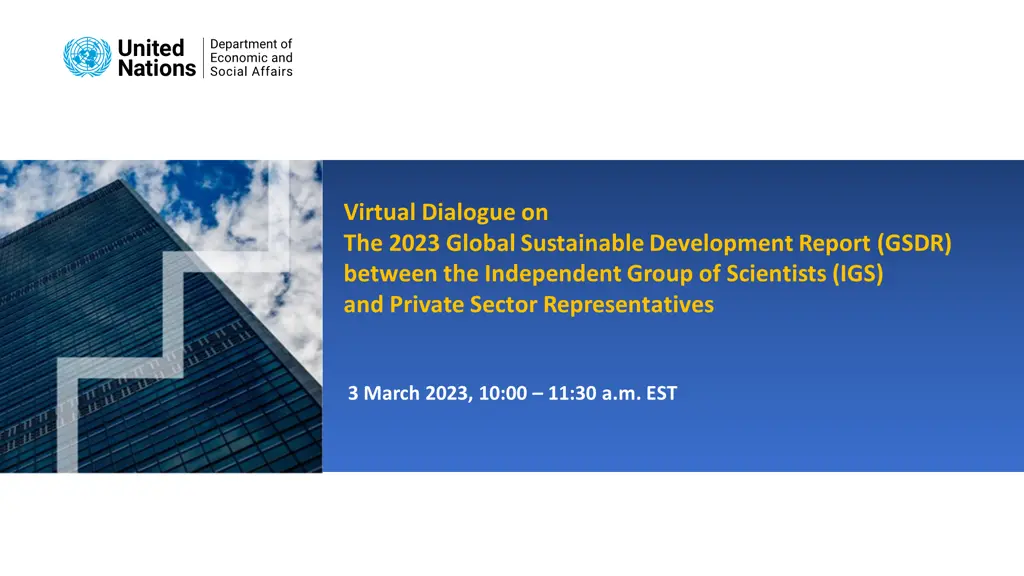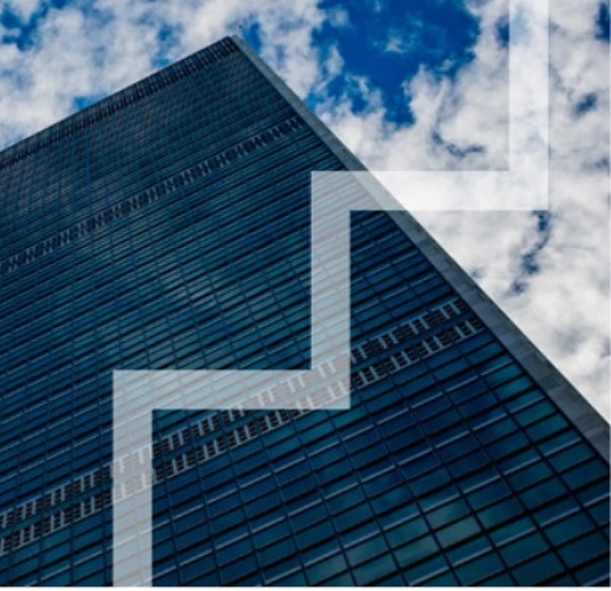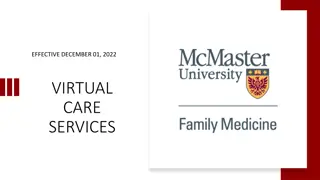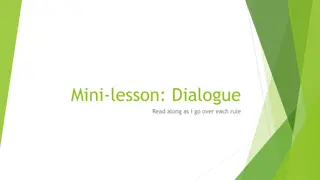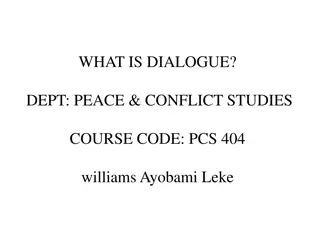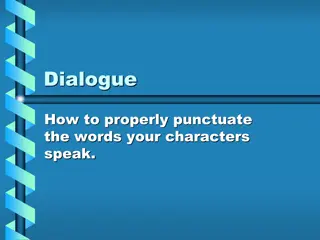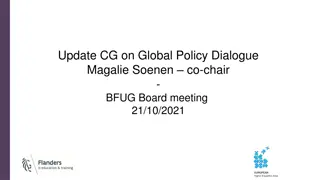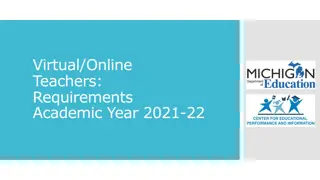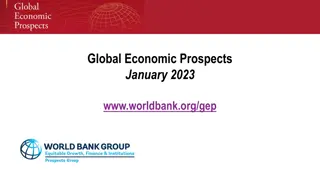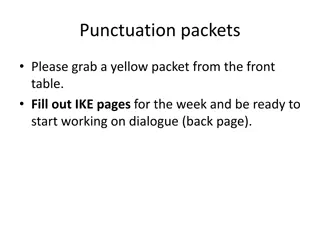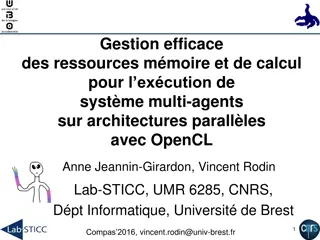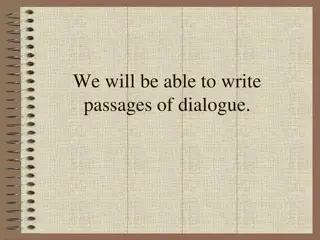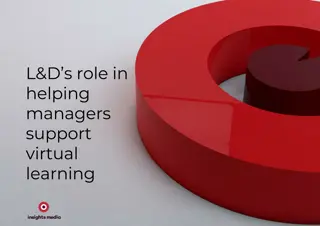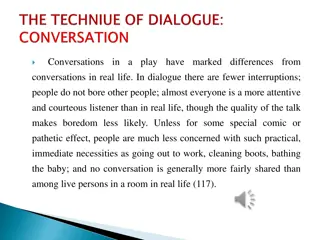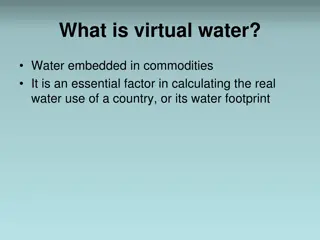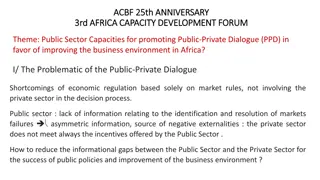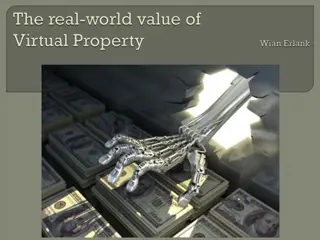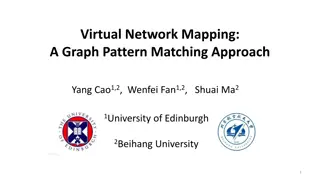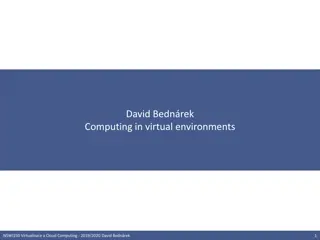Virtual Dialogue on the 2023 Global Sustainable Development Report (GSDR)
Independent Group of Scientists (IGS) and Private Sector Representatives in a virtual dialogue on the 2023 GSDR. Explore the preliminary findings and recommendations of the report, engage in a moderated discussion, and participate in Q&A sessions. Don't miss this opportunity to contribute to sustainable development efforts.
Download Presentation

Please find below an Image/Link to download the presentation.
The content on the website is provided AS IS for your information and personal use only. It may not be sold, licensed, or shared on other websites without obtaining consent from the author. Download presentation by click this link. If you encounter any issues during the download, it is possible that the publisher has removed the file from their server.
E N D
Presentation Transcript
Virtual Dialogue on The 2023 Global Sustainable Development Report (GSDR) between the Independent Group of Scientists (IGS) and Private Sector Representatives 3 March 2023, 10:00 11:30 a.m. EST
AGENDA Welcome remarks Presentation on Preliminary Findings and Recommendations of the 2023 Global Sustainable Development Report (GSDR) Moderated discussion with private sector representatives Q&A with audience Closing thoughts
Welcome Remarks Ms. Astra Bonini Senior Sustainable Development Officer Division for Sustainable Development Goals United Nations Department of Economic and Social Affairs
Presentation on Preliminary Findings and Recommendations of the 2023 Global Sustainable Development Report (GSDR) Professor Norichika Kanie Keio University; Member of the Independent Group of Scientists appointed by the Secretary-General to draft the 2023 GSDR
A glance at the 2023 Global Sustainable Development Draft Report Virtual Dialogue on the 2023 Global Sustainable Development Report (GSDR) between the Independent Group of Scientists (IGS) and Private Sector Representatives Members of the Independent Group of Scientists (N=15) Prof. Norichika Kanie, Professor, Keio University and Director, xSDG Lab at Keio SFC Research Institute
Global Sustainable Development Report 2023 An evidence base for SDG Summit once in four years Strengthen the science-policy interface An assessment of assessments Extensive input including Regional Consultations: South America, Southeast Asia, Africa, Western Asia Draft delivered to Member States recently 15 IGS members very much looking forward to feedback SDG Summit UN General Assembly, 19-20 September, 2023
CONTEXT We are in the Anthropocene... social vulnerability. In the 2020s Multiple Compounding Global Risks: climate change, biodiversity loss, geopolitical conflict, financial instability, COVID19 and natural disasters Escalating social vulnerability.
IGS 2023 wanted to Keep a Focus on the INTEGRATED perspective of SDGs to avoid trade-offs and international spillovers Use Theory of Change that could help accelerate actions at key phases. . sense of urgency AND a sense of hope
Global Sustainable Development DRAFT Report 2023 Chapters 1: Half-way To 2030 2: Framing The Future 3: Accelerating Transformations to SDGs 4: Transformations Through Science 5: Call To Actions
Chapter1: HALF-WAY TO 2030 PROGRESS TOWARDS THE SUSTAINABLE DEVELOPMENT GOALS Evaluating progress since 2015 and 2019, all SDGs Focusing on Colors and DIRECTION OF MOVEMENT Slowing down of progress Reversed progress on several goals Still negative trends on environment-and inequality-related goals Crises or scarring effects-including COVID19
Chapter 2: Framing the future There is ample room to both prepare for and shapethe future up to 2030 and beyond Planning for medium-term trends that will predictably affect prospects for SDGs A warming climate, with losses and damages but also low- carbon opportunities Losses in nature and biodiversity, putting 50% of GDP at risk A digital transformation net effect for sustainable development? Demographic change, altering the workforce and consumption patterns Growing economic inequalities, increasing social tensions
SDG action and governance Broad awareness the SDG framework is robust Increasing commitments, partnerships and institutional mechanisms Weak links Financing and budgeting International cooperation Accountability SDSN, 2022. SDG Index
Incorporating new scientific knowledge We have new science-based tools and data: SDG interlinkages Which SDGs are particularly synergistic or involve trade-offs? International spillovers How are we interdependent? Scenario modelling Where are we heading, and what if we change? Need for accelerated and intensified science-policy- society collaboration, with a clear focus on action and implementation. Hughes et al. 2021
Transformative change and key interventions 2019 GSDR framework New lever: Capacity-building Example key interventions: Universal health coverage, doubled health budgets Universal social insurance, double R&D budgets Public procurement for sustainable diets, green fertilizer mandate Carbon pricing, EV mandates, coal phase-out Public transport investment, access to basic services Payment for nature-based solutions, secure land tenure, metrics beyond GDP Take an integrated and dynamic approach
Chapter 3: Accelerating Transformations to SDGs Can we strategically enable SDG solutions to move from emergence to acceleration to stabilization tracing an S-curve?
Examples of s-curves - Technological, social and policy innovations Vaccine coverage Share of electric vehicles
Capacities for integrated transformations From a single s-curve to integrated SDG-curves
4: Transformations Through Science Science lies at the heart of sustainable development -> GSDR 2019 BUT we know a lot already, how can society including scientists speak more convincingly to government to inspire bold decisions - to use the power of science and technology as an effective lever for starting, accelerating and stabilizing transformation.
Goal: Science-Policy-Society Interfaceand it s happening
Transformations can be rooted in socially robust science. Indigenous Socially-robust= Production of scientific knowledge rooted in real- world application University Civil Society Org Many Sources of Expertise Extended peer communities to frame, exchange, and review knowledge to ensure quality ( also a good offset fake news )
Addressing.Global imbalance in research and development GERD ~4X> in high income countries (most $ from private industry) The inequality=> impt questions not asked, important results not always equitably distributed. Inequality Excerbated by COVID19 Vaccine Production and COVID19 Vaccine Distribution
Outputs of research, metadata, should be freely accessible with no borders geographical, temporal, social or cultural, expands use of science towards the attainment of the SDGs OPEN SCIENCE we see an emerging SCIENCE- POLICY-SOCIETY INTERFACE that leads to enhanced global cooperation and multilateralism BUT progress depends on sharing knowledge openly and equitably OPEN SCIENCE: A shift to open science can change how research is done, who is involved, and how it is valued. Public interest groups, policymakers, industry and teachers should have access to all underlying scientific research including publications, data and software Mobilizing knowledge to influence public policy, the education system and public understanding.
Trust and Integrity Agenda 2030 Fake News States, media outlets and regulatory bodies should explore a GLOBAL CODE OF CONDUCT that promotes integrity in public information, facilitated by the United Nations Time to better manage and regulate the digital commons as a global public good Science-Society UN Secretary General, in Our Common Agenda
Socially robust science may bridge the gap between policy commitment and policy implementation IPCC is a well-developed global scientific process yet we are not on track to stay Below 1.5C Broadening towards a Science-Policy- Society Interface can only help .. Target -Below 1.5C
Chapter 5: Call to Actions in 5 Themes Establish an SDG Transformation Framework for Accelerated Action by 2024 How to Build Capacity of State and Non-state-holders How to use Levers in an integrated way to overcome impediments along the S-curve Identifying interventions (for each Entrypoint) that will capitalize on SDG synergies and minimize trade-offs and spillovers Identify measures to accelerate implementation. For today, we will focus on the First Call to Action theme.
Establish an SDG Transformation Framework for Accelerated Action by 2024 to include components such as Set global priorities that guide national prioritisation of SDG action Analysis of SDG interlinkages ID Synergies, Bottlenecks and Multilateral commitments: Minimize Environmental tradeoffs, transboundary spillovers Identification of key interventions to achieve Multiple Goals
In Closing Against the backdrop of the changes and shocks of the last few years, the 2030 Agenda for Sustainable Development remains a strong and valid agenda for a desirable future for people, planet, and prosperity in peace. Making progress on the SDGs is an insurance/building resilient systems against new crises and shocks
Moderated discussion with private sector representatives MODERATOR Norine Kennedy Kathleen Ebersohn- Khuvutlu Cristina Moral Silvano De Marte Mardi McBrien Shivani Nayyar Senior Vice President, United States Council for International Business (USCIB) Senior Advisor Climate Policies and International Alliances, Iberdrola External Advisor International Organisation of Employers (IOE) Director of Strategic Affairs, IFRS Foundation Senior United Nations Department of Economic and Social Affairs (UNDESA) Sustainability Manager, Old Mutual Limited Questions/Comments? Please use the Q&A box and clarify which speaker it is addressed to. Thank you!
Q&A You can either raise hand in Zoom to ask for the floor or share comments/questions in the Q&A box. Please identify yourself (name and organization) at the beginning.
Thank you! For more information about the 2023 GSDR, please visit https://sdgs.un.org/gsdr/gsdr2023 Follow us on Facebook/Twitter @SustDev for latest intergovernmental updates related to the SDGs.
